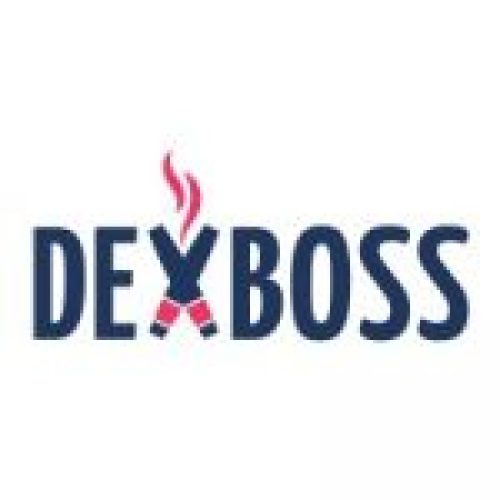In today’s rapidly evolving business landscape, supply chain management faces unprecedented challenges. From ensuring product authenticity to streamlining logistics, companies are constantly seeking innovative solutions to enhance efficiency, transparency, and security. Enter Blockchain as a Service (BaaS) – a game-changing technology that’s reshaping the future of supply chain operations.
In this comprehensive guide, we’ll explore how Blockchain as a Service is transforming supply chain management, its numerous applications, and the tangible benefits it offers to businesses across industries.
Table of Contents:
- Understanding Blockchain Technology in Supply Chain
- The Rise of Blockchain as a Service (BaaS)
- Key Benefits of Blockchain in Supply Chain Management
- Real-world Applications of BaaS in Supply Chain
- Implementing BaaS: Challenges and Solutions
- Future Trends and Innovations
- Case Studies: Success Stories in Blockchain Adoption
- Conclusion: Embracing the Blockchain Revolution
- Understanding Blockchain Technology in Supply Chain
Blockchain technology, at its core, is a distributed ledger system that records transactions across a network of computers. This decentralized approach ensures that no single entity has control over the entire chain, making it highly secure and transparent.
In the context of supply chain management, blockchain offers a revolutionary way to track products, verify authenticity, and streamline processes. By creating an immutable record of each transaction and movement within the supply chain, blockchain provides unprecedented visibility and traceability.
Key features of blockchain in supply chain:
- Decentralized network
- Immutable records
- Smart contracts for automated processes
- Real-time tracking and monitoring
- Enhanced security through cryptography
- The Rise of Blockchain as a Service (BaaS)
As the potential of blockchain in supply chain became evident, a new model emerged: Blockchain as a Service. BaaS provides companies with the benefits of blockchain technology without the need for extensive in-house development and infrastructure.
BaaS platforms offer:
- Pre-built blockchain networks
- Easy integration with existing systems
- Scalability and flexibility
- Reduced implementation costs
- Expert support and maintenance
Leading tech giants like IBM, Microsoft, and Amazon have launched their own BaaS offerings, making it easier for businesses of all sizes to adopt blockchain technology in their supply chain operations.
- Key Benefits of Blockchain in Supply Chain Management
3.1 Enhanced Transparency and Traceability
One of the most significant advantages of blockchain in supply chain is the unprecedented level of transparency it offers. Every transaction and movement of goods is recorded on the blockchain, creating a tamper-proof audit trail. This transparency enables:
- Real-time visibility of product location and status
- Easy identification of bottlenecks and inefficiencies
- Improved compliance with regulations and standards
- Enhanced consumer trust through product provenance
3.2 Increased Efficiency and Cost Reduction
By automating many manual processes and eliminating intermediaries, blockchain technology significantly improves supply chain efficiency:
- Streamlined documentation and paperwork
- Reduced processing times and delays
- Minimized human errors
- Lower transaction costs
- Optimized inventory management
3.3 Improved Security and Fraud Prevention
The immutable nature of blockchain records makes it an excellent tool for combating fraud and ensuring data security:
- Tamper-proof records prevent unauthorized alterations
- Enhanced protection against counterfeit products
- Secure sharing of sensitive information among partners
- Reduced risk of cyber attacks and data breaches
3.4 Smart Contracts for Automated Processes
Smart contracts, self-executing contracts with the terms directly written into code, are a powerful feature of blockchain technology:
- Automated execution of agreements when predefined conditions are met
- Reduced need for intermediaries and manual interventions
- Faster and more accurate payment processing
- Improved supplier relationship management
3.5 Real-time Tracking and Monitoring
Blockchain enables real-time tracking of products throughout the supply chain:
- Instant updates on product location and condition
- Proactive identification and resolution of issues
- Enhanced ability to manage perishable goods
- Improved customer experience through accurate delivery estimates
- Real-world Applications of BaaS in Supply Chain
4.1 Food and Agriculture
The food industry has been quick to adopt blockchain technology to enhance food safety and traceability. Companies like Walmart have partnered with IBM’s Food Trust blockchain platform to track the origin and journey of food products.
Walmart’s Food Traceability Initiative
Benefits:
- Rapid identification of contaminated products
- Reduced food waste
- Improved consumer confidence
- Enhanced compliance with food safety regulations
4.2 Pharmaceuticals and Healthcare
In the pharmaceutical industry, blockchain is being used to combat counterfeit drugs and ensure the integrity of the supply chain. Companies like MediLedger are pioneering blockchain solutions for drug traceability and verification.
Applications:
- Track and trace of medications from manufacturer to patient
- Verification of drug authenticity
- Improved management of controlled substances
- Enhanced compliance with regulations like the Drug Supply Chain Security Act (DSCSA)
4.3 Automotive Industry
Automotive manufacturers are leveraging blockchain to improve supply chain transparency and streamline parts tracking. For example, BMW has implemented blockchain technology to trace the origin of cobalt used in its electric vehicle batteries.
Use cases:
- Tracking of raw materials and components
- Verification of ethically sourced materials
- Improved recall management
- Enhanced supply chain visibility for complex assemblies
4.4 Retail and E-commerce
Blockchain is revolutionizing the retail sector by providing enhanced product authenticity and improved inventory management. Companies like VeChain offer blockchain solutions for product verification and anti-counterfeiting.
Applications:
- Product authentication for luxury goods
- Improved inventory tracking and management
- Enhanced customer engagement through product stories
- Streamlined returns and warranty processes
4.5 Logistics and Transportation
The logistics industry is benefiting from blockchain’s ability to provide real-time tracking and streamline documentation processes. Companies like TradeLens, a joint venture between Maersk and IBM, are using blockchain to digitize global trade processes.
Benefits:
- Real-time visibility of shipment status
- Reduced paperwork and administrative costs
- Improved coordination among multiple stakeholders
- Enhanced customs clearance processes
- Implementing BaaS: Challenges and Solutions
While the benefits of blockchain in supply chain are clear, implementation can present challenges. Here are some common hurdles and strategies to overcome them:
5.1 Integration with Legacy Systems
Challenge: Many companies have existing supply chain management systems that may not be compatible with blockchain technology.
Solution:
- Choose BaaS platforms that offer easy integration options
- Implement blockchain solutions gradually, starting with pilot projects
- Invest in training and change management to ensure smooth adoption
5.2 Scalability Concerns
Challenge: As transaction volumes grow, some blockchain networks may face scalability issues.
Solution:
- Opt for BaaS platforms that offer scalable infrastructure
- Consider hybrid blockchain solutions that combine public and private networks
- Implement off-chain storage for non-critical data to reduce network load
5.3 Regulatory Compliance
Challenge: The regulatory landscape for blockchain technology is still evolving, creating uncertainty for some industries.
Solution:
- Stay informed about regulatory developments in your industry
- Engage with regulatory bodies to help shape blockchain-friendly policies
- Implement flexible blockchain solutions that can adapt to changing regulations
5.4 Data Privacy and Security
Challenge: While blockchain offers enhanced security, concerns about data privacy and protection of sensitive information remain.
Solution:
- Implement robust access control mechanisms
- Use private or permissioned blockchain networks for sensitive data
- Encrypt data before storing it on the blockchain
5.5 Standardization and Interoperability
Challenge: Lack of standardization across different blockchain platforms can hinder interoperability and widespread adoption.
Solution:
- Support industry initiatives for blockchain standardization
- Choose BaaS platforms that prioritize interoperability
- Implement blockchain solutions with open APIs and standard data formats
- Future Trends and Innovations
As blockchain technology continues to evolve, several exciting trends are emerging in the supply chain space:
6.1 Internet of Things (IoT) Integration
The combination of blockchain and IoT devices promises to revolutionize supply chain tracking and monitoring. Smart sensors can automatically update the blockchain with real-time data on product location, condition, and environmental factors.
6.2 Artificial Intelligence and Machine Learning
AI and machine learning algorithms can analyze blockchain data to identify patterns, predict issues, and optimize supply chain operations. This synergy between blockchain and AI will enable more intelligent and autonomous supply chains.
6.3 Tokenization of Assets
Asset tokenization on the blockchain can facilitate more efficient and secure transfer of ownership throughout the supply chain. This could revolutionize areas such as trade finance and inventory management.
6.4 Sustainable Supply Chains
Blockchain technology is increasingly being used to verify sustainability claims and ensure ethical sourcing of materials. This trend will continue to grow as consumers demand more transparency in product origins and environmental impact.
6.5 Cross-Border Trade Facilitation
As blockchain adoption increases, we can expect to see more streamlined cross-border trade processes, with reduced paperwork, faster customs clearance, and improved coordination among international stakeholders.
- Case Studies: Success Stories in Blockchain Adoption
7.1 IBM Food Trust and Walmart
IBM Food Trust, a blockchain-based platform for the global food supply chain, has partnered with Walmart to enhance food traceability. In one pilot project, Walmart was able to trace the origin of mangoes in seconds, a process that previously took seven days.
Results:
- 99.99% reduction in time to trace food products
- Improved food safety and reduced waste
- Enhanced consumer trust and transparency
7.2 De Beers and Tracr
De Beers, the world’s largest diamond producer, developed Tracr, a blockchain platform to track diamonds from mine to retail.
Outcomes:
- Enhanced transparency in the diamond supply chain
- Reduced risk of conflict diamonds entering the market
- Improved consumer confidence in diamond authenticity
7.3 Maersk and TradeLens
Shipping giant Maersk collaborated with IBM to create TradeLens, a blockchain-based platform for global trade.
Benefits achieved:
- 40% reduction in transit time for shipments
- Real-time visibility of container movements
- Streamlined documentation processes
7.4 Provenance and Sustainable Fashion
Provenance, a blockchain startup, has partnered with fashion brands to provide transparency in their supply chains.
Results:
- Increased consumer trust in sustainability claims
- Enhanced brand reputation
- Improved supply chain visibility for ethical sourcing
These case studies demonstrate the tangible benefits that blockchain technology can bring to various aspects of supply chain management across different industries.
- Conclusion: Embracing the Blockchain Revolution
As we’ve explored throughout this article, Blockchain as a Service offers transformative potential for supply chain management. From enhancing transparency and traceability to improving efficiency and security, the benefits of blockchain technology are clear and far-reaching.
While challenges in implementation exist, the rapid development of BaaS platforms and growing ecosystem of blockchain solutions are making adoption easier than ever. As more companies embrace blockchain technology, we can expect to see increasingly sophisticated and integrated supply chain networks that deliver unprecedented value to businesses and consumers alike.
The future of supply chain management is undoubtedly intertwined with blockchain technology. By leveraging BaaS solutions, companies can stay ahead of the curve, optimizing their operations, reducing costs, and building trust with their partners and customers.
As we move forward, it’s crucial for businesses to:
- Stay informed about blockchain developments in their industry
- Identify specific use cases where blockchain can add value to their supply chain
- Start with pilot projects to gain experience and demonstrate ROI
- Collaborate with technology partners and industry consortiums
- Invest in training and change management to ensure successful adoption
By embracing blockchain technology today, companies can position themselves at the forefront of supply chain innovation, ready to thrive in an increasingly complex and interconnected global marketplace.
The blockchain revolution in supply chain management is here. The question is no longer if blockchain will transform the industry, but how quickly companies will adapt and harness its power. Those who act now stand to gain a significant competitive advantage in the years to come.



